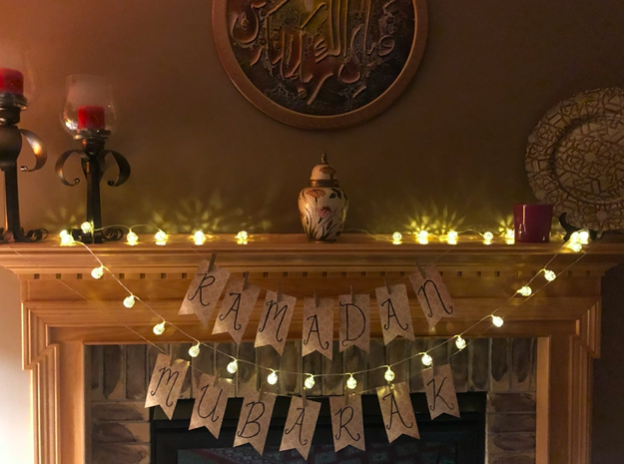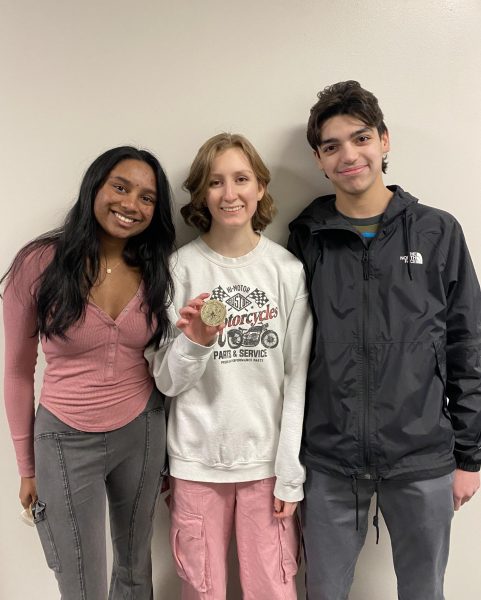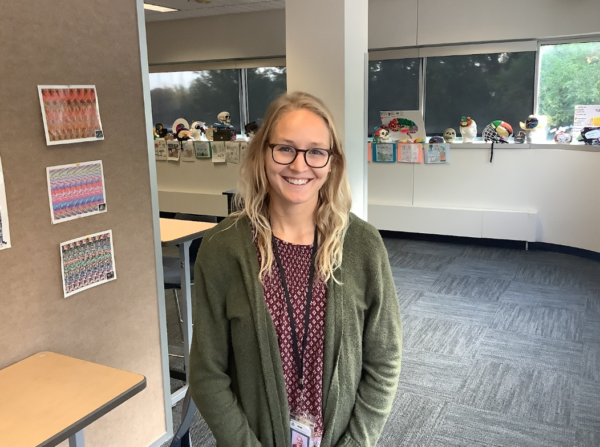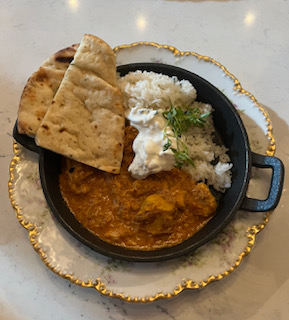Celebrating Ramadan
May 5, 2021
On April 12th, although it was a normal day for many people, for Muslims all around the world this day marked the beginning of Ramadan. Ramadan, which is the 9th month of the Islamic calendar, is a 1 month holiday observed by Muslims. During this month, Muslims fast from sunrise to sunset each day, not only avoiding food and water but otherworldly desires. At the time of sunset, we break our fast with friends and family. Ramadan is not constantly on April 12th each year. Ramadan starts about 10 days earlier than it did the previous year. During Ramadan, as we approach the final days, the fasts become longer because the sunset is later. The fasts this Ramadan are about 16 hours long.
Ramadan is the holiest month of the Islamic calendar for Muslims as it brings us closer to God and makes us realize all of our blessings. Even though our sleep schedules are messed up and we are hungry, the spirit of Ramadan is to show kindness and patience through all of it. This month shows us what hunger and thirst really feel like and it makes us more compassionate for the less fortunate. During the last 10 nights of Ramadan is when Muslims believe that the first few verses of the Quran, Islam’s Holy Book, were revealed.
Fasting is one of the 5 pillars of Islam and is obligatory for all Muslims. However, there are some restrictions on who can fast, for example, the young, old, sick, and women who are pregnant cannot fast. Another one of the pillars is Salah, which means praying. Each day, there are 5 prayers Muslims offer: one at sunrise, afternoon, late afternoon, sunset, and night. These prayers are done every day, not just during Ramadan. Along with it being a month of fasting and devotion to God, this month also is one of celebration. Pre-Covid, you would see your friends almost every night at a friend’s house or the Mosque when you would open your fasts together at sundown!
Eid al Fitr marks the end of Ramadan. This 3-day long celebration consists of parties, fancy clothes, and food! Eid starts with a prayer around 9 am. Many people show up to this prayer; in past years, Muslim organizations have hosted Eid prayer in the U.S Bank Stadium! After the prayer, there are many parties where you get to see your friends and exchange gifts!
A typical day in Ramadan consists of little sleep but somehow lots of energy. Below is what a normal day looks like for me during Ramadan!
3:45 am: Wake up before sunrise to eat the final meal before fasting. This meal is called Sehri! I try to have a heavy meal but I tend to get more thirsty than hungry throughout the day so I make sure to drink at least 4 glasses during the hour I am awake! Typically, I eat bread and an omelet or oatmeal and a smoothie, whatever keeps me filled!
4:45 am (or whenever sunrise is): Pray our first prayer of the day, Fajr. This marks the beginning of your fast. Prayers only take a few minutes so I go back to bed after praying.
7:40 am: I wake up for online school! Since I don’t have to eat breakfast, I get to use that time to sleep in.
1 pm: Time for the second prayer, Zuhur! This prayer is offered during the afternoon and like every other prayer time, this one varies day to day! However, Zuhur prayer is one of the more consistent ones and is always around 1 pm!
5 pm: Around late afternoon is when we pray our 3rd prayer, Asr! The time for Asr prayer is always around 5 pm. This is the time I typically finish my homework so I start helping to prepare the meal we eat when we break our fast! I also try listening to a lecture from an Islamic scholar while I help prepare food!
7:00 pm: Around 7 is when I sit down and read Quran, Islam’s holy book. The Quran is written in Arabic and although many Muslims know how to read Arabic, it is difficult to understand and comprehend Arabic. Reading English translations helps me understand what I am reading! I have a Quran that is divided into 30 separate books; this helps me read 1 a day during Ramadan, making sure I finish the Quran by the time Ramadan ends. Some days when I can’t find the time to read the Quran, I will have someone’s recitation of it on in the background!
8:12 (or whenever sunset is): Time to break our fast! Muslims typically break their fast with a date and water before eating an actual meal. My family likes to break our fast by a date and then offer the 4th prayer of the day before finally eating iftar, the meal we eat to end the fast for that day. Iftar can consist of whatever you like! Pre Covid, almost every day, someone would host an iftar at their house or a mosque! There you would get to see your friends and break your fast with them! Nowadays, friends make iftar at home and drop it off at each other’s houses to keep the spirit!
After iftar nowadays is downtime to do whatever I like. Pre- Covid, we would go to the mosque, if we already weren’t there, to offer our final prayer. After offering our prayer, there is an optional prayer called Taraweeh. During Taraweeh, an Imam -a Islamic leader, think of them as a priest- recites the Quran in long portions. Taraweeh typically ends at about 11:30 or 12 am. Typically, many Muslims show up to Taraweeh prayer so you can find your friends at the mosque as well! After that, my family would head home, but some days a big group of family and friends would head to Perkins or a 24-hour restaurant to eat Sehri. However, this year, Taraweeh prayers aren’t being offered by most mosques because of Covid so Perkin runs have also been put on hold. Before going to bed, I offer my final prayer, Isha, and sleep until I have to wake up for Sehri again!













